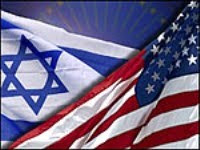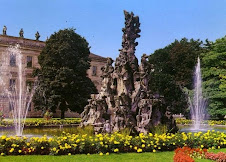One has to admit that in the past couple of generations, we have seen some pretty interesting characters come and go as president. When I was born, Harry Truman was in office though I have no memories of him. My memories of presidents past begins with Dwight Eisenhower. I was 18 when John F Kennedy was assassinated. Other figures like Reagan and Clinton had their share of interesting qualities both in and out of the White House. Yet, of all the presidents in my lifetime, I still think that the most interesting character was none other than Lyndon Baines Johnson.
Johnson's principle biographer, Robert Caro, is presently writing the fourth and final book in his history of the life of Johnson (The Years of Lyndon Johnson). I have read the first three, The Path to Power, Means of Ascent, Master of the Senate, and eagerly await the fourth, which will deal with his presidency.
Johnson, who came up poor in the hill country of Texas, was a complex figure. He was crude and foul-mouthed. He was a woman chaser, though hardly of the ilk of Bill Clinton or John F Kennedy. Prior to going into politics, he was a lowly school teacher, whose pupils were mostly dirt-poor Mexican-American children, an experience which made him a life-long supporter of the underdog. During World War II, Johnson was already in Washington though a Lt Commander in the Naval Reserves. He did spend a month in the Pacific and rode along on one combat mission in which he experienced enemy fire. He then returned to Washington, where he rose to become the most powerful man in the Senate and was known as the consummate politician and deal-maker. He was elected to the Senate in 1948 and earned the nickname of "Landslide Lyndon" because of a razor-thin and highly controversial election victory in Texas. As Senate Majority Leader in 1957, he helped get the 1957 Civil Rights Act passed.
After losing to Kennedy in the 1960 Primary Election, he shocked everyone by accepting the VP spot on Kennedy's ticket though it was thought that the two men detested each other. Many of Kennedy's aides and followers resented Johnson, a feeling that carried over into his presidency.
Upon taking office when Kennedy was assassinated in 1963, Johnson made his mark as President in two areas; Viet Nam and Civil Rights. Though, under Kennedy, the US had troops in Viet Nam as advisers, under Johnson, it became America's war after the controversial Gulf of Tonkin incident. It was the prime issue that drove Johnson from power as he decided not to run for re-election in 1968 in the face of nation-wide protests. Those around him all said that Johnson, who micro-managed the war, agonized over the reports of increasing US deaths.
But it was his involvement in the Civil Rights movement that stands as Johnson's monument. His contributions to the passage of civil rights legislation over the objections of many in his own party in Congress cannot be minimized. Many wondered why Johnson, a Southerner known to occasionally use the "N-word", went so far to champion this cause. At any rate, Johnson used all his political skills to get the votes needed for passage of the 1964 Civil Rights Act. The Act, which had been initiated by President Kennedy, had been bottled up in committee. It was Johnson more than any other person who got the legislation through Congress and to his desk for his signature.
During the 2008 Democratic Primary, Hillary Clinton drew heat when she made a comment on Johnson's importance to the Civil Rights movement which seemed to belittle Martin Luther King's contributions. Yet the fact remains that no other president aside from Abraham Lincoln and probably no other white person besides Lincoln did more to advance the rights of African-Americans in this country.
With the election of Richard Nixon in 1968, Johnson left office and died five years later, aged beyond his years. He was 64.
Probably more than any other president (with the possible later exception of Clinton), Johnson's memory survives in Secret Service folklore. Of course, the code of the Secret Service prohibits agents from publicizing the dark little secrets that they learn about the people they protect, a code which they adhere to being the professionals that they are. Yet, among themselves and certain other federal law enforcement agents, stories do circulate, and those about Johnson were legion. As a DEA agent who occasionally worked with the Secret Service, I heard a few which are hysterically funny. As stated above, Johnson had a reputation for crudity. He was a stern taskmaster, and when he walked into a room, everyone knew who was in charge. He was not universally liked by his protection detail. One story that I will repeat goes along the lines that when he died and was buried on his property along the banks of the Pedernales River, one of his agents walked out to the fresh grave site later that night when it was dark and proceeded to urinate on his grave.
(If anyone from the Secret Service is reading this, forget the subpoenas. It was long ago, and I don't remember who told me this or when and where I heard it.)
History has not yet been too kind with Johnson, mostly due to Viet Nam. Johnson suffered from a lack of charisma. He was not a gifted public speaker, nor was he an attractive-looking man in his later years. History still seems to be working out whether his civil rights contributions outweigh the tragedy of Viet Nam. Make no mistake about it though; Lyndon Johnson was a giant.














No comments:
Post a Comment